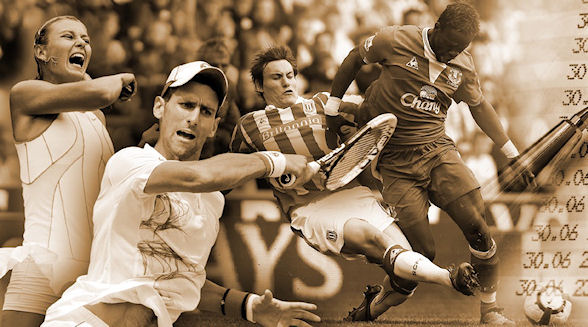This article first appeared in the Mar/Apr 2013 issue of World Gaming magazine.
WGM’s sports betting expert Big Jim talks about the importance of keeping records. After all, how do you know if you are winning or losing?

Sports bettors can be divided into two major categories: those who do it seriously and those who do it for fun. There is nothing wrong with being a recreational sports punter at all. If you like to put a few dollars on your favorite team or go to the races every now and then, you might find recording your betting history not so important.
Serious sports punters, on the other hand, need to keep records. If you bet using only one sports bookmaker then all your bets will be recorded with them. But if you are going to be serious about your sports betting you should be shopping around to find the best prices possible.
To begin your sports betting dossier you can record how much you placed on each bet, and how much you won or lost. This will tell you one very simple yet vitally important statistic: are you winning or losing?
The secret to being a successful sports bettor is the ability to identify your strengths and weaknesses. You would be surprised to know how many punters get this wrong. For example, you may think your strength lies in a particular area that in reality is leaking money, and merely propped up by success in another. You might be fooling yourself by placing a high percentage of winning bets, but your few losing bets may be big amounts that are costing you too much.
 There is a long list of variables that need to be recorded and studied if you want to be really successful. Let’s have a look at some of the variables you should definitely record for each bet:
There is a long list of variables that need to be recorded and studied if you want to be really successful. Let’s have a look at some of the variables you should definitely record for each bet:
- The date: this can be the date you placed your bet, the date of the event you are betting on, or even better, both.
- How much you bet
- The price of your bet
- How much you won or lost
- Where you placed the bet: you might find you are consistently getting better prices with a particular bookmaker and want to keep more of your stake money in that establishment
- The sport: this is a key element, as you need to see which sports you excel at
- The event: you might find you win on one aspect of a sport but lose on others
- The type of bet: is it a win bet, line/handicap/ spread bet, a total bet or is it an exotic bet?
I think this list would represent the bare minimum. Obviously you can go into greater depth. For example you might want to record the times you place your bets – you may find you back more winners betting during the day than you do late at night. You may find you have a better strike rate betting on weekends than you do midweek. Any information can be added to your records if it helps with your analysis.
Another thing you can do is to record more detailed information about the results. Did you win the bet easily, or was it a close call? Did you get lucky or were you unlucky? This information can help you determine whether your statistics are being inflated or deflated by short-term variance, otherwise known as “luck”. This is even more important when you first start and your bet history is still in its juvenile stage. As your record keeping matures, the figures become more reliable and variances become less significant.
Recording result information also builds an archive for testing theories you may have. If you specialize in a couple of sports you might want to record data on all events and games, not just the ones you are betting on. For example, you may suspect a team tends to perform poorly when they back up five days after their previous game, as opposed to a full seven days of rest and recovery. You will need the information at your disposal to prove or disprove your theory.
To say that all winning sports bettors keep records would be wrong. But nearly all winning sports bettors do. It’s a bit like going to a doctor and not telling him the whole truth about your ailment. Who are you fooling? After all, you are there to be healed. It’s the same thing with sports betting. There is no point crowing about how good you are unless you know for sure you are winning. Take the time, even if the records are very simple. After a while, keeping records will become second nature and part of your routine. You may well find your recorded information is the difference between being a long-term winner or a perennial loser. Any increase in profits goes straight into your coffers.







